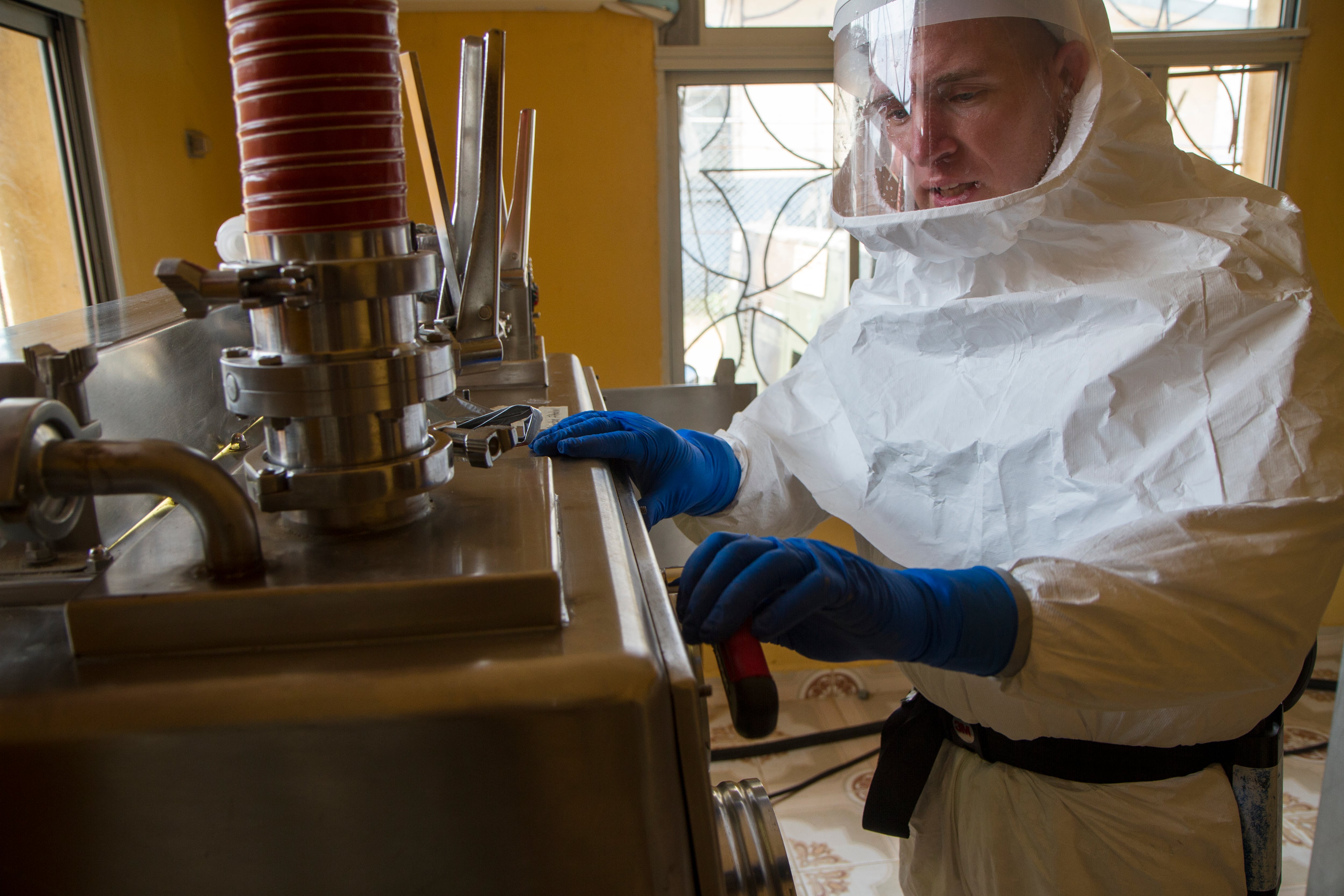About two dozen soldiers with 1st Area Medical Laboratory deployed to Liberia for five months as part of Operation United Assistance, returning in March 2015. They operated four blood-testing labs and helped oversee two others manned by Navy personnel as part of Task Force Scientist.
The soldiers performed quick-turnaround blood tests to identify carriers of the disease, a duty that required extensive safety measures and was performed in less-than-ideal surroundings.

Capt. Shawn Palmer, a biochemist with 1st Area Medical Laboratory, works to break down a lab in Zwedru, Liberia, on Feb. 9 as his unit's testing mission came to a close.
Photo Credit: Staff Sgt. Terrance D. Rhodes/Army
Soldiers tested more than 4,500 blood samples. As the threat began to wane in early 2015, the labs began to close. But as with other soldiers who deployed in support of the humanitarian mission, 1st AML members would have a homecoming hiccup – a 21-day "controlled monitoring" period, hosted in their case by Joint Base Langley-Eustis, Virginia.
"It has the potential to be very boring if you allowed it to be," Boggess said. "Other organizations, they chose that the only thing they had to do all day were the two temperature checks [to screen for possible Ebola exposure]. But our organization used it as an opportunity to allow soldiers to catch up on online training they were not able to do in Liberia due to not having Internet access, as well as a lot of integration training that's typically done post-deployment."
The unit has received four Meritorious Unit Commendations as part of a history it traces back to World War II – with several gaps for deactivation, renaming and reorganization – a unit spokesman said. When not battling disease outbreaks, soldiers spend much of their time training for potential medical threats and assisting with a variety of other missions – for example, some are on temporary duty in South Korea as part of chemical/biological defense efforts, Backlund said.
The unit also maintains its 14-day "prepare-to-deploy" status, he said. The unit had soldiers in Africa about a month after receiving notification of its Ebola mission.
Rumors regarding the unit award, officially bestowed Friday during a ceremony at the unit's Aberdeen, Maryland, home, started swirling shortly after the return from Liberia, Boggess said.
"It's kind of like an official pat on the back to know that what the soldiers accomplished over there was appreciated," he said. "The help that we were able to give the Liberian people has been noted. … This award gives the soldiers something to hang their hat on."
The unit is part of 20th CBRNE (Chemical, Biological, Radiological, Nuclear and Explosives) Command and has been the only one of its kind in the Army since 2012.
The Army Superior Unit Award, created in 1985, recognizes "outstanding meritorious performance by a unit during peacetime of a difficult and challenging mission under extraordinary circumstances," per Army award regulations. Unlike other Army unit awards, it does not require recipients to be part of combat operations. The 101st Airborne Division received the Joint Meritorious Unit Award in August for its participation in the Africa operation.
Kevin Lilley is the features editor of Military Times.




